President Joe Biden has set the table for the world’s first-ever summit devoted to building both national and international political will for democratic renewal. Given backsliding in democratic governance, human rights, and rule of law around the world, and the rising threat posed by authoritarian leaders in China and Russia, the timing is propitious, if not overdue.
But like any good dinner party, who gets invited usually determines the quality of the evening and the mood for future such gatherings. In the case of the Summit for Democracy, if the heads of state and government of some 112 countries (including the United States) bring to the meal some honest recognition of their shortcomings (humble pie), along with concrete pledges for reform and cooperation (the main course), the convening would have been worth the effort.
Foreign policy visionaries have long held loftier ambitions of a grand alliance of democracies that would rebalance the international order to favor liberal democratic governance over autocracy. The more urgent task, however — and indispensable to such a project — is building healthy and strong democracies characterized by accountable and open governance, respect for fundamental rights in law and practice, and impartial and accessible dispute resolution mechanisms — in short, the rule of law rather than the rule of a single party or strongman. Only with functioning democratic systems that deliver on the basic needs and promise of human dignity at the national level can we hope to build a structure for collective action by like-minded actors on the global stage, and offer the world a compelling alternative to China’s authoritarian model.
The invitation list
Although the White House studiously avoided publishing any formal criteria for which countries to invite, it should come as no surprise that the Biden administration has invited democracies such as Denmark, New Zealand, and Uruguay. Consistently ranking as some of the top performers in their regions, these countries and many others can offer good examples and friendly advice to their neighbors. Similarly, it is plain why some countries were not invited, as autocracies such as Venezuela, Myanmar, and Belarus continue to worsen in terms of fundamental rights, open and accountable governance, and corruption.
More interesting are cases where countries received an invitation despite performing poorly in relation to the three main themes of the summit: defending against authoritarianism, fighting corruption, and promoting respect for human rights. Geopolitical considerations naturally influenced which of these swing states made the cut.
An objective assessment on grounds of democratic governance, human rights, and rule of law, nonetheless, is worth a closer look. The World Justice Project (WJP)’s Rule of Law Index has collected data from thousands of in-country experts and households for over a decade. Using its latest edition released in October, which scores 138 countries plus Hong Kong, I analyzed the invitation list based on performance on the three rule of law factors that represent the themes of the summit.
Asia: Philippines, Pakistan, and India in, Bangladesh out
In Asia, where China’s influence is felt most acutely, some invitees were obvious choices, while others were more surprising. The Philippines, an invited U.S. ally, has the third-lowest index rank of 15 countries in the East Asia & Pacific region, just above Myanmar. It also had the greatest 2020-2021 decrease in its score in the region (-2.9%), aside from Myanmar, with its greatest declines in the rule of law factors that align with the themes of Biden’s summit: constraints on government powers (-5%), fundamental rights (-5%), and absence of corruption (-4%).
In South Asia, Pakistan, ranking at 130th out of 139 on global rule of law scores and fifth of six regional countries, was invited, while Bangladesh, which scores slightly higher, was not. Here, trend lines may partly explain the discrepancy. Since 2015, Pakistan’s score has improved slightly, while Bangladesh has worsened, led by significant declines in constraints on government powers (-6%), absence of corruption (-3%), and fundamental rights (-5%). Another likely factor for Pakistan’s invitation was a desire to balance India’s inclusion with a regional, if aspiring, democratic rival. While India ranks in the middle tier of all countries in the WJP index, it had significant decreases (-4%) in its scores on constraints on government powers, absence of corruption, and fundamental rights from 2020 to 2021.
Europe and North America: Poland in, Hungary and Turkey out
Europe and North America have historically performed well in terms of democracy and the rule of law. That said, in the past few years, even more stable democratic countries in the trans-Atlantic region have experienced democratic backsliding, part of a global rising trend of authoritarianism. Poland stands out in this regard; since 2015 its overall index score has fallen by about 10%. Nonetheless, the White House invited Warsaw to the summit, perhaps a nod to its important role in NATO as a bulwark against Russia. On the other hand, Hungary, facing its fifth straight year of decline, was excluded, and Turkey, which has mostly fallen out of the democratic camp under Recep Tayyip Erdoğan’s leadership, also was turned down.
A particular challenge for the United States as host of the summit is how to reconcile its declining performance on democracy and the rule of law over the last several years with its presumed leadership role as a “beacon of freedom.” In 2021, the United States’ overall rule of law score dropped 2.9%, more than any other high-income country or any other country in Western Europe and North America. Deterioration was particularly pronounced in the factors measuring constraints on government powers, absence of corruption, open government, respect for fundamental rights, and criminal justice. Washington’s faltering effort to get its own house in order via a much-needed domestic political reform agenda has bruised its otherwise welcome recommitment to democracy promotion as a foreign policy priority.
Africa: Nigeria and DRC in, Rwanda out
Of 16 African invitees, South Africa is no surprise, despite ongoing serious challenges with corruption and order and security. However, Rwanda, which ranks first in sub-Saharan Africa on the WSP index but low on freedom of expression and civic space, did not make the cut. Nigeria, another invitee, had the greatest overall score drop in the region last year since, mostly driven by a deterioration in constraints on government powers and fundamental rights, while corruption continues to be its biggest challenge. The Democratic Republic of the Congo (DRC), ranked 137th out of 139 globally in overall rule of law score and the worst performer in Africa, is another surprising guest on the list. Both Abuja and Kinshasa will be hard-pressed to demonstrate serious commitment to cleaning up chronic weaknesses in fighting corruption.
Latin America: Brazil and Mexico in, El Salvador out
In Latin America, Uruguay, Costa Rica, and Chile are the top performers on the index, and their invitations are unsurprising. The region’s two heavyweights, Mexico and Brazil, were borderline but made the cut. The overall score for Mexico, which has steadily declined since 2015, dropped 2.9% in the past year. Brazil had a similar decline in the rule of law since 2020, part of a negative trend over the last six years.
El Salvador, Honduras, and Guatemala, which are critical nodes in the Biden administration’s efforts to address the root causes of the migration crisis, are notably and deservedly absent from the summit list. All three declined in their overall rule of law score and in constraints on government powers, absence of corruption, and fundamental rights. Of them El Salvador had the biggest decline, mainly driven by the rise in authoritarianism and restrictions on fundamental freedoms under the Bukele administration.
How the invitation list compares to the 2021 WSJ Rule of Law Index
| Country | Invited? | Global rank (of 139) | Regional rank | Overall score | 2020-21 % change in score |
| United States | Host | 27 | 20/31 | 0.69 | -2.9% |
| Poland | Yes | 36 | 26/31 | 0.64 | -2.4% |
| Rwanda | No | 42 | 1/33 | 0.62 | 0.5% |
| South Africa | Yes | 52 | 5/33 | 0.58 | -0.4% |
| Hungary | No | 69 | 31/31 | 0.52 | -1.4% |
| Brazil | Yes | 77 | 16/32 | 0.50 | -2.9% |
| India | Yes | 79 | 3/6 | 0.50 | -1.9% |
| El Salvador | No | 95 | 24/32 | 0.48 | -3.3% |
| Philippines | Yes | 102 | 13/15 | 0.46 | -2.9% |
| Mexico | Yes | 113 | 27/32 | 0.43 | -2.9% |
| Turkey | No | 117 | 14/14 | 0.42 | -2.5% |
| Nigeria | Yes | 121 | 26/33 | 0.41 | -3.7% |
| Bangladesh | No | 124 | 4/6 | 0.40 | -2.8% |
| Pakistan | Yes | 130 | 5/6 | 0.39 | -0.4% |
| DRC | Yes | 137 | 33/33 | 0.35 | 1.2% |
Why it matters
A functioning club of democracies, as well-meaning and necessary as it is, depends on members that meet a minimum standard of democratic governance and a shared interest in collective action to defend it. Deciding who to include under the first criterion should be more science than art. We have treaties, declarations, protocols, and constitutions that articulate a set of universal principles and also allow plenty of room for diverse forms of democratic pluralism. We also have reams of reporting, empirical studies, and indices that benchmark progress and regression against these standards. What is missing is the political will of leaders and their allies to share power and govern for the many, rather than the few, at home and abroad.
The Summit for Democracy, and the year of action to follow, will prove its worth if it can help mobilize such political will, starting with a democratically dysfunctional United States. It offers a timely test of the basic proposition that democracies do have the capacity for self-correction and can learn from each other along the way. It gives civil society an opportunity to leverage summit commitments to push for reforms back home. It may even grease the wheels for more meaningful international cooperation to control corruption, detoxify our information ecosystem, and contain authoritarians, all worthwhile goals. The table is set, let the feasting begin.
-
Acknowledgements and disclosures
The author would like to thank Sally Aldrich and Natalia Rodriguez for their excellent research assistance for this article.
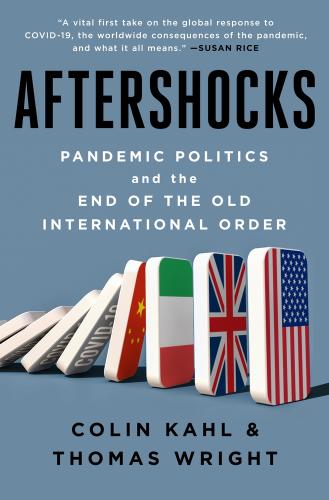
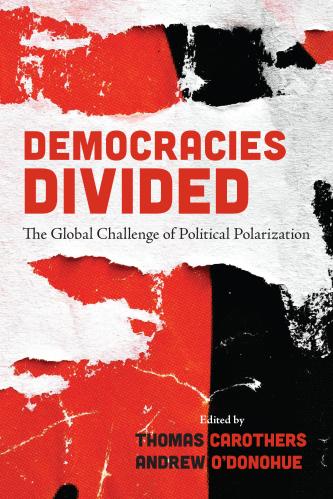
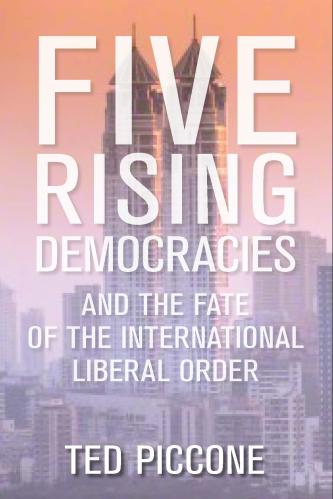
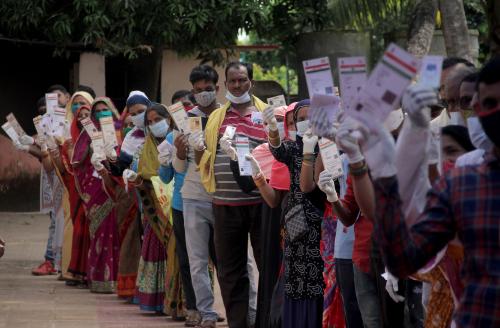
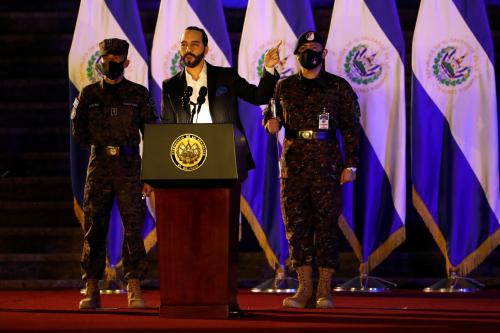
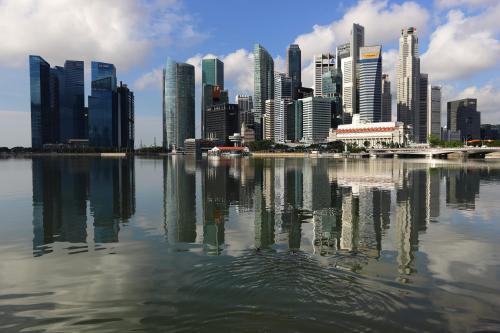

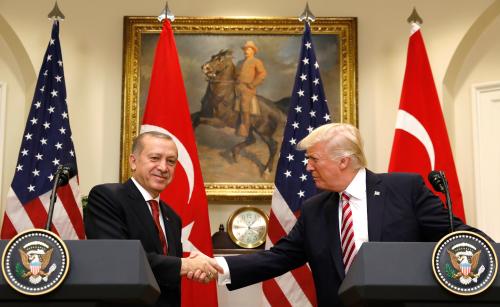
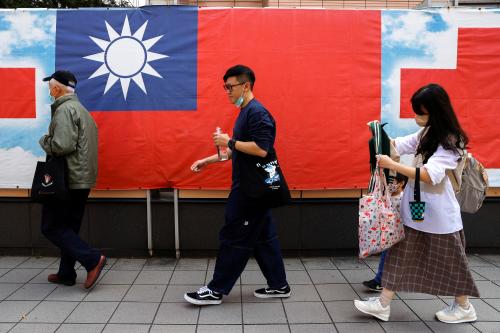
Commentary
The awkward guests: Parsing the Summit for Democracy invitation list
December 7, 2021